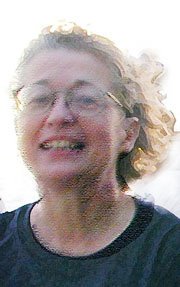Cooperation and collaborationin science and education go digital
I worked in graphic design when the first Macintosh computers came out. Jobs in the printing and publishing field were the first to be disrupted by the powerful new digital tools -- desktop computers. A few of us talked about this change and named it "getting DTP'ed" (getting desktop published) -- to aptly descibe the rapidity and breadth of the cultural change that turns an industry niche inside out. We've watched as one field after another "got DTP'ed". Some were hard to believe -- such as lawyers, and education. But now we have science facing the DTP challenge. And agriculture! The following summary published at the 60th anniversary of the "UC California Agriculture" magazine reflects the DTP challenge.
The World Wide Web has become the dominant information retrieval pathway, especially in science, education and business.
Two things have fueled this evolution. Digitized content has grown explosively and there is no end in sight. In a recently announced agreement, UC and Google will undertake to digitize and index selected contents of the UC library system, as well as those of other major institutions. Combined with similar initiatives by Yahoo and other search engines, this agreement shows that society has implicitly and collectively agreed that this Herculean task is both possible and desirable. It also demonstrates our confidence that the technology behind today’s powerful search engines is capable of storing, indexing and retrieving that information.
Secondly, growing online communities based on “social networking” permit both direct conversations between individuals as well as specialized Web publishing through blogs, Web forums, wikis and virtual communities. Cooperation and collaboration are no longer limited by time or distance, nor are online reviews, online real-time editing or instant publishing. These developments promise to vastly reduce publication costs. The open-source software development community demonstrates that virtual teams can accomplish highly complex tasks and distribute valuable products.
These technical and behavioral changes are disruptive. In fact, Dan Greenstein, university librarian and head of the California Digital Library, has figuratively called them “subversive.”
New forms of popular and academic publishing will affect scholarly communications much as Web distribution has revolutionized the music industry and newspaper publishing. New kinds of copyright licenses and new definitions of intellectual property rights will be required.
One significant effort to define these agreements is the Open Content Alliance. Web archives and aggregators such as UC’s own eScholarship Repository and the national Web project eXtension are working to develop open models of content creation, attribution, licensing and ownership.
To take full advantage, we must do more than ensure that content exists on the Web and that it is appropriately indexed and recognized by search engines. We must also engineer online peer-review processes that are flexible enough to accommodate the whole range of information and publication methods, from refereed journals to one-page fact sheets.
We must explore new forms of community or “salon” review that allow editorial or content changes to Web information in real time. We must also adapt to changing notions of intellectual property and copyright. At the same time, we must ensure the quality of our information, protect its identity and source, and deliver it in an effective form to the people of California.





0 Comments:
Post a Comment
<< Home